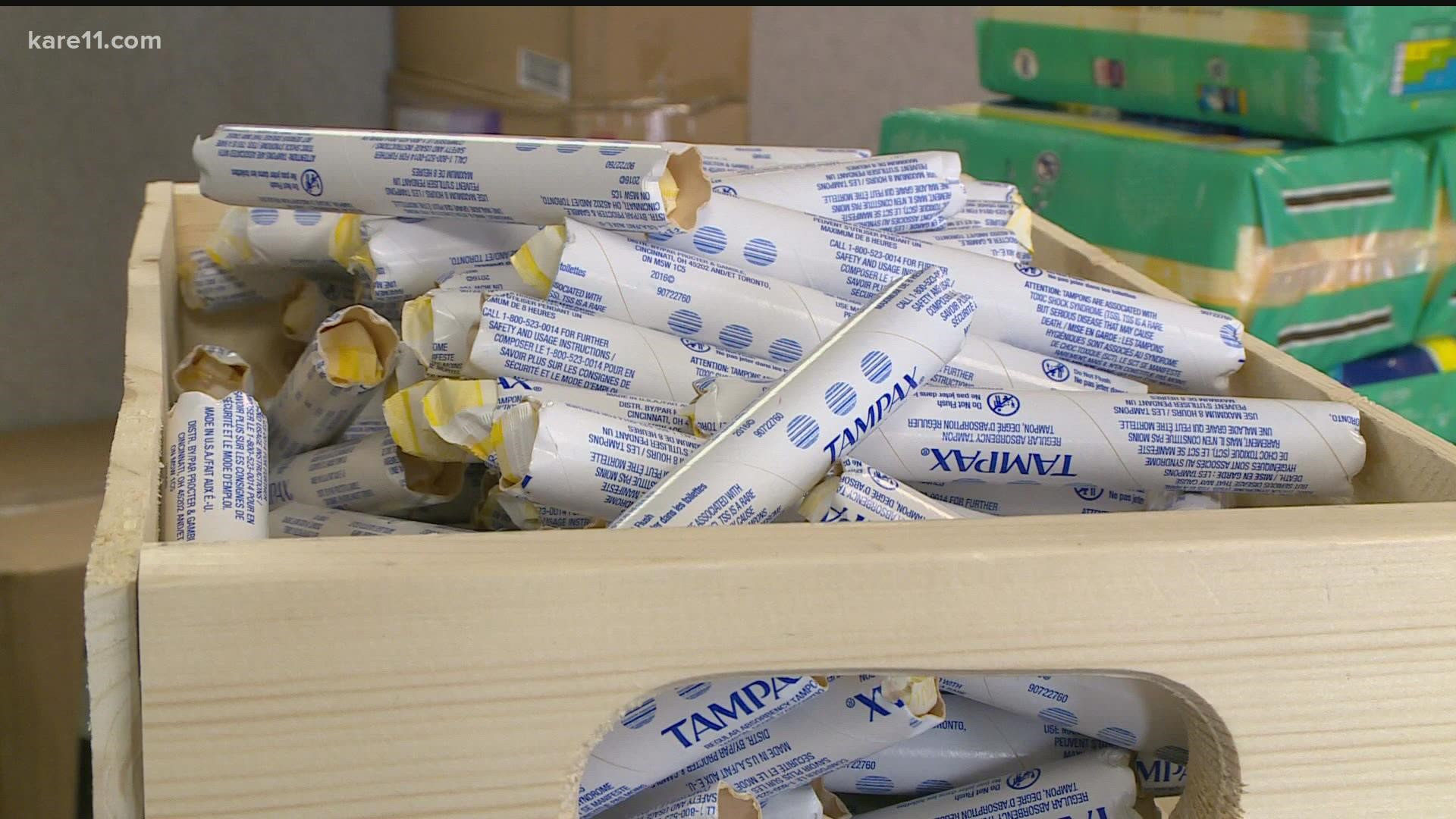ST PAUL, Minn. — A Senate panel Monday took up a bill that would pay for free feminine products in grade school bathrooms, an effort they say is to help girls who can’t afford those products concentrate on learning.
Sen. Steve Cwodzinski, an Eden Prairie Democrat and retired high school teacher, is the chief author of the Menstrual Equity Bill in the Senate. He said until he took on this legislation, he was unaware of what girls go through trying to find products at school, or asking to borrow sweaters to cover up clothing stains.
"I could go on and on about the number of women in the past year who have come up to me to say, ‘We provide toilet paper, soap and paper towels. How come we don’t provide menstrual products’?" Sen. Cwodzisnki told colleagues on the Senate Education Committee.
"They asked, 'Why are we penalizing young girls for being young girls? How come I can’t go through my period with a little bit of dignity?'"
Senate staff predicted the program, if implemented, would cost the state $1.9 million per year. The state currently has a projected surplus of $9 billion for the current two-year budget cycle.
Elif Ozturk, a sophomore at Hopkins High School, said she first became aware of girls who couldn’t afford tampons and pads when she was in the eighth grade. During the ninth grade, she started calling lawmakers asking for help.
"What truly frustrated me though was the fact I had friends who didn’t just forget their product, but couldn’t afford them in the first place," Ozturk told the panel.
"I had friends whose parents couldn’t give them access to this luxury product. I had friends who decided to just skip school during that time because a 14-year-old girl can’t always handle the stress of doing geometry while blood is leaking onto her chair."
Thomas Stinson, a school nurse at Harding High School in Saint Paul, told lawmakers that he and other nurses often pay for feminine products out of pocket because there’s no room in the school budget for it.
"Every single day students come to my health office for period products," Stinson explained.
"Many students don’t have the money or the means to get period products, so they rely on the public schools. It’s a public health issue. And it should be a right."
Beth Gendler of the National Council of Jewish Women said her organization started a drive in 2017 to collect feminine products after receiving a letter from a student at an alternative high school where many students were homeless or lived in extreme poverty.
She said the campaign has distributed nearly 200,000 pads and tampons to schools and community organizations since then, but the supply is down to just one pallet of products now. State funding would be a more reliable, long-term solution.
"I’m kind of ashamed to admit that it wasn’t until recently that we realized that period poverty isn’t just an issue for developing countries. It’s an issue that impacts students learning in our own neighborhoods."
The Education Committee voted to lay the bill over, which means it will essentially set it aside for the time being for possible inclusion in a larger omnibus education bill to be formulated later in the session.
Companion legislation in House has made it through one committee already and is set to be heard in a second one.
Watch more Minnesota politics:
Watch the latest political coverage from the Land of 10,000 Lakes in our YouTube playlist:

